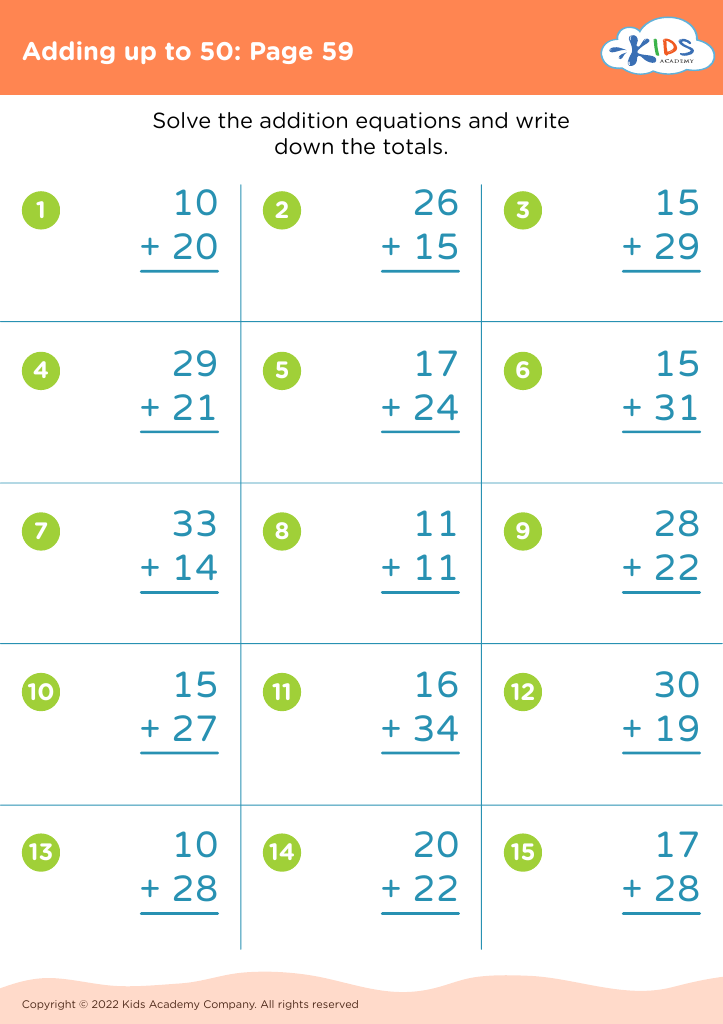Understanding sequence Worksheets for Ages 8-9
4 filtered results
-
From - To
Discover the importance of understanding sequences with our engaging worksheets designed for children aged 8-9. These resources help young learners enhance their critical thinking and problem-solving skills as they explore patterns in numbers, events, and stories. Each worksheet offers a variety of exercises that promote logical reasoning through fun activities, such as arranging sequences and identifying order in various contexts. Our user-friendly format supports independent learning and reinforces essential sequencing skills. Perfect for classroom use or at-home practice, these worksheets aim to make learning about sequences enjoyable and effective, setting the foundation for future mathematical concepts. Explore our collection today!
Understanding sequence is critical for children aged 8-9, and parents or teachers should prioritize this skill for several reasons. At this age, children begin to engage in more complex narratives and mathematical concepts. Mastering sequence helps them organize their thoughts and understand the flow of events, which are essential skills in both reading comprehension and writing.
In literacy, recognizing the sequence in a story allows children to identify the plot structure, follow character development, and grasp cause-and-effect relationships. This improves critical thinking and enhances their ability to discuss literature thoughtfully. In mathematics, understanding sequences lays the groundwork for concepts like patterns, operations, and eventually, algebra. It fosters logical reasoning that helps children break down problems into manageable steps.
Furthermore, sequencing is foundational for daily life skills—times of events, planning tasks, or following instructions require an understanding of order. Encouraging practices such as storytelling and math games not only makes learning engaging but also equips children with the organizational skills necessary for academic and personal tasks. Overall, a focus on sequence supports higher cognitive development, fostering confident and capable learners.




















